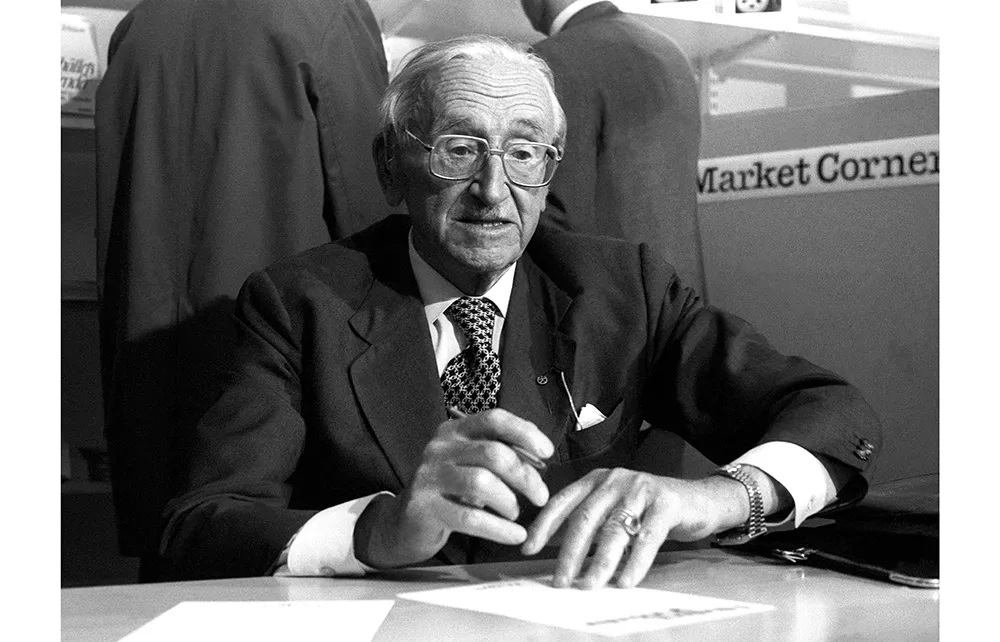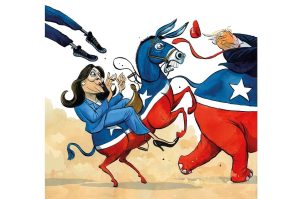Real wages have barely increased for more than a decade. Banks have had to be bailed out, and many still exist on a form of state life support. Growth has stalled, taxes are at seventy-year highs, yet governments are still bankrupt. Unless you happen to be part of a tiny plutocracy made up mostly of tech entrepreneurs and financiers, there has rarely been a point, at least since the nadir of the mid-1970s, when the economic system seemed beset by quite so many challenges as it is today. The left has smartly stepped into the intellectual space that has been created with a series of well-timed polemics, which, while they vary in precise analysis and on solutions, have at least one thing in common. They argue that the system is fundamentally broken and it will take radical action to fix it. And, in fairness, they have a point, even if it is not quite the one they think they have identified.
Joseph Stiglitz’s The Road to Freedom is the most heavyweight of the three books under review — as you might expect from a winner of the Nobel Prize for economics, and a former chief economist at the World Bank. He makes the case for “progressive capitalism.” It is a blueprint for technocratic social democracy — think Bernie Sanders on roller skates — with lots of pledges of big-spending government programs to humanize raw capitalism, and global systems of taxation and welfare to tame its animal spirits.
George Monbiot and Peter Hutchinson’s The Invisible Doctrine is the slightest of the trio. With very short chapters, and lots of secret societies, hidden codes and deep conspiracies stretching far back in time, it is a kind of eco Dan Brown. You half expect the Knights Templar to turn up brandishing a plan to privatize Britains public health system. Yet the main mystery about the book is how it took two people to write it.
Perhaps surprisingly, the most substantial is Grace Blakeley’s Vulture Capitalism. Although she has few academic credentials beyond a degree in PPE, Blakeley is grounded in Marxist theory, which she passionately updates for the twenty-first century. To her credit, she engages with capitalism as it is, warts and all. From bank bailouts, to money-grubbing private equity firms, to the ruthless data trading of the web giants and the rigged markets of the City and Wall Street, she gets into the grimy plumbing. And like so much plumbing, while we can defend it as necessary, even its champions have to admit that it often doesn’t smell very sweet.
Another thing the books have in common, apart from the fact that they are all from “the left,” is that they are obsessed with the Austrian economist Friedrich Hayek. Indeed, even the title of Stiglitz’s book is a riff on Hayek’s classic The Road to Serfdom. He writes:
Hayek… claimed that a too-big state was paving the way to our loss of freedom. It is evident today that free and unfettered markets advocated by Hayek and [Milton] Friedman… have set us on the road to fascism,
According to Monbiot:
In 1947, Hayek formed the first organization to promote neoliberalism, the Mont Pelerin Society. There he and others began to create what has been described as ‘Neoliberal International,’ a transatlantic network of journalists, academics and business people seeking to develop a new way of seeing and running the world.
How did that work out? Blakeley argues:
The neoliberals won. As the twenty-first century wore on, they supported the election of politicians who crushed the powerful labor movement, privatized public companies and marketized the welfare state. And they did this in the name of ‘freedom.’
There are two problems with this thesis, one minor, the other major. The minor one is that if the “neoliberals” really are a cabal secretly running the world they are not doing a very good job of keeping the whole sinister project under wraps. After all, three books in the space of a month have called their number, and there are many more on the shelves. They may not actually be up to the whole “secretly running the world” thing after all.
The major problem is this. All three authors, along with much of the left, vastly overestimate the influence of Hayek, and any of the other free market post-war philosophers. In the UK, for instance, you can probably count the number of “Hayekians” on your fingers. Even Margaret Thatcher didn’t have much time for him; in her government he was barely read and even less understood.
In reality, we could hardly be further from a purely Hayekian world than we are today. Instead, we inhabit a global economy where the state is more dominant than it has ever been. In France, the state accounts for 58 percent of GDP, for 53 percent in Belgium and 45 percent in the UK. In communist Cuba, it is 48 percent, while in Venezuela under Hugo Chavez it was 36 percent. Meanwhile, taxes are close to an all -time peacetime high as a percentage of income, and more redistributive than ever, with, in the UK, the top 10 percent of earners paying 60 percent of all income taxes, double the level they paid in the 1970s. Under President Biden, the US has embarked on the most ambitious industrial policy in its history, and the EU is matching it.
Is that really a world in which “the blazing insurrectionary confidence of neoliberalism… has become the norm,” as Monbiot puts it? Is this really the “heyday of neoliberalism,” as Stiglitz argues? It doesn’t feel like it. Instead, the state is larger, taxes more and increasingly intrudes on everyday life. All three books are right to identify that something is badly wrong with the economic system — that it doesn’t deliver the well-paid, secure jobs, comfortable, affordable homes and generous welfare systems that people want. It is just a shame that the diagnosis, and the solutions, are so misguided. In reality, the problem is growth, not capitalism. And if you were to address that, it might — quelle horreur! — involve admitting that the state was too large. It might even make you a neoliberal.
This article was originally published in The Spectator’s UK magazine. Subscribe to the World edition here.





















